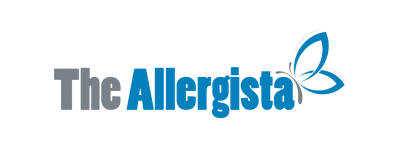5 Elements of a Financial Plan For Small Business.

Being consistently ranked for a business-friendly environment, Virginia attracts many business owners towards it. So, the chances of starting a successful business in this state are high, and they can become even higher with a well-defined financial plan.
A financial plan gives you a clear picture of the good and bad business days, which reduces stress throughout your entrepreneurial journey. However, only 35% of American adults have a formal financial plan. 65% of those who use financial plans report feeling financially stable, even though only a small percentage of people use them. You can speak with a CPA in Reston, VA, for assistance.
5 Components Of a Winning Financial Plan For Small Business –
- Financial objectives and statement.
A financial plan should focus on the financial position of your business to know its success and failure in the long run. You should note down the financial goals and the ways to achieve them at the beginning of your business journey.
This will help you arrange adequate funds and reduce the chances of debts in the future. Your goals should be divided into long-term and short-term goals. So, if your long-term goal is to make $50,000 in a fiscal year, then your short-term goal should include investment strategies and fixed savings to achieve this goal.
- Expenses outlay
Reston is known for its expensive cost of living, and the tax rate, transportation, health care, etc, make it even more difficult for businesses to sustain in this city without a proper expenses outlay. Expenses are the deciding factor of the profitability of a business; therefore, creating an expense plan with routine as well as occasional expenses is essential for small business owners. For this, you can note down the regular expenses like rent, wages, utility, etc. You should analyze the changes in these expenses due to uncertain future events like tax rate and interest rate changes.
Additionally, you should prepare a part of your expense plan for unexpected events like natural disasters and thefts to deal with uncertainties.
- Balance sheet and cash flow statement
Balance sheets and cash flow statements contribute towards clarity in business transactions. Therefore, they are necessary in making financial plans. The balance sheet includes assets like machinery, bills receivables, and liabilities like bills payable to a business, whereas the cash flow statement indicates the outflow and inflow of business money.
This helps in understanding the liquidity of the business, which is necessary for the payment of short-term debts and the growth of the business.
- Recovery plan
Every business will have its dry days, so prior preparation for these dry days is essential.
Therefore, a recovery plan is made by businesses underlining the ways to recover from the loss and, till then, cutting off expenses to the lowest while utilizing savings to run the business in harsh conditions. The recovery plan should highlight what to do during credit risk, thefts, losses, natural disasters, changes in trends, etc, along with effective strategies to deal with liabilities and get insurance.
- Investment plan
Small businesses should focus on allocating money from outside the business through smart investments. These investments can be made in stocks, bonds, real estate, etc. For instance, in cities like Reston, where real estate prices are highly competitive, investment in real estate is an ideal decision.
However, business owners in the cities where real estate prices stay consistent and low should consider investing in shares. The money should be diversely distributed in different areas for investment to avoid huge losses.









